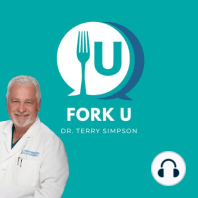3 min listen

Canola Oil is Healthy and Inexpensive
Canola Oil is Healthy and Inexpensive
ratings:
Length:
11 minutes
Released:
Dec 13, 2023
Format:
Podcast episode
Description
Canola Oil is Healthy and InexpensiveDid you ever notice there are those people who will tell you how everything is bad for you? Don't eat this and don't eat that?They make grand assertions about the modern food system. Often claiming we should return to the age of the caveman. Assuming that health will return when we eat what our ancestors ate.The Logical Fallacy of Ancestral Diets / and HumansProponents of ancestral diets are confused by the logical fallacy called a biotruth.What is a biotruth? An argument based upon a misunderstanding of natural selection or the evolutionary process. Usually combined with the conclusion that if it was good enough for primitive man, it should be true for now. Ultimately, we forget that primitive man did not have an easy life.Canola Oil Podcast TranscriptCanola oil is today's topic because not everyone wants to buy expensive olive oil. When I mention canola oil on TikTok, the comments go like this:Canola oil was "meant" to be motor oilIt comes from the rapeseed plantIt is a GMO-crummy oilChemically extracted with hexane and it can turn rancid and create trans-fatsAre those claims valid? Should we avoid Canola oil? Must we avoid Canadians in general?Today on Fork UWe will make sense of the madness that is Canola oil. Is it an evil plant that is only good to make oil for your car, truck, or tank? Or is it a reasonable oil for your body?I'm Dr. Terry Simpson, and this is Fork UFork UniversityWhere we make sense of the madnessBust a few mythsAnd teach you a little bit about food as medicine.What is Canola Oil?Canola oil was invented in the 1970s in Canada and is an acronym that stands for Canadian oil's low acid.Canola comes from the pressed seeds of rapeseed plants. Granted, that is an unfortunate name. However, not if you know its epistemology. Rapeseed comes from the Latin rapa, which translates to "turnip." Thus this flowering plant is a member of the turnip, cabbage, and mustard family.Latin just isn't taught anymore. But if you think of Rome often, as we men do, Latin might be the new language for you.Speaking of Mustard, did you ever wonder why we don't have mustard oil in the United States? Primarily Erucic acid.Erucic AcidErucic acid is a monounsaturated fatty acid that is associated with heart disease. In some poorly done experiments in rats, they seemed to have higher levels of heart disease. Rats, not politicians. But the healthy kind of rats you find in sewers, not the vermin found in Washington, DC.Erucic acid is why you don't find mustard seed oil in the United States. Those who travel to India will experience delicious foods cooked in mustard oil. But don't fear. It will be just fine (ref).In fact, erucic acid decreases the rate of some progressive brain diseases and is being examined to treat cancer and other diseases.Rapeseed Oil as a lubricantBecause of the high erucic acid content, rapeseed oil was originally used as an industrial lubricant. Some rapeseed was cold pressed, seeds gathered, pressed, and not heated, and the oil extracted. This has been used as a cooking oil for years, but there was concern regarding the erucic acid content.Canadians HybridsCanadian scientists began to crossbreed the rapeseed with wild cabbage to lower erucic acid. The seeds of this new hybrid plant became the Canola oil. Later, this plant was genetically modified to withstand Round Up. Hence, it is a genetically modified plant (
Released:
Dec 13, 2023
Format:
Podcast episode
Titles in the series (52)
The Carnivore Diet and Myths by Fork U with Dr. Terry Simpson